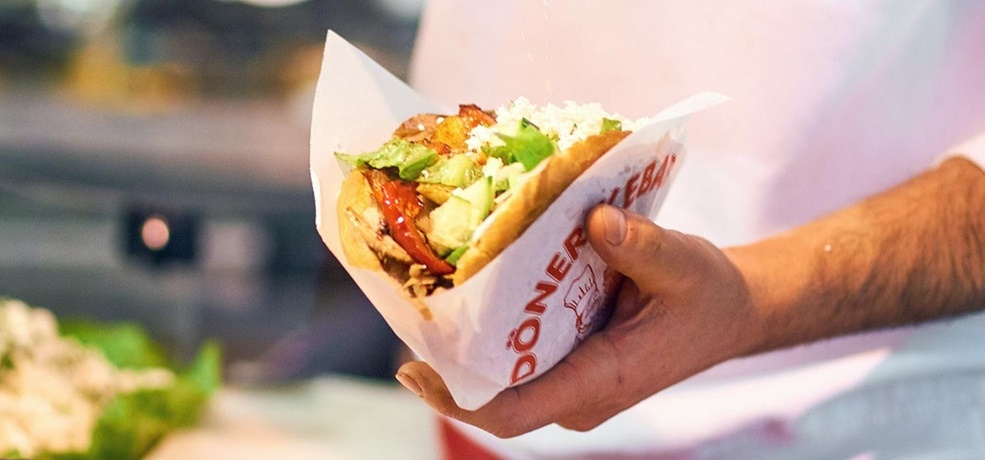How expensive doner kebab has become
The doner kebab as a quick meal for in between meals is more popular than currywurst. Here, too, prices have risen sharply. However, there are big differences between the federal states.

Döner is a quick, cheap meal for in between meals – available for a few euros. The nationwide availability and the low prices have made it one of the favorite fast food dishes of the Germans. But the days of the three-euro doner kebab are over. Restaurateurs are struggling with high inflation and are forced to raise their prices.
Cost-covering only from nine euros?
“If we wanted to sell the doner kebab to cover costs, we would have to raise the price to at least nine euros,” says Ömer Gülec. He runs a kebab shop in Frankfurt am Main with his brother and had to raise the price of his kebab once before in February.
Many of his customers could understand the urgently needed step towards higher prices. But: “For some customers, the doner kebab is a staple that mustn’t cost more than six euros.” So he has to calculate well so that customers don’t suddenly stay away because the prices are too high.
Particularly strong food price increases
Many restaurateurs throughout Germany are like Ömer Gülec: they are suffering from high inflation. In February this year, consumer prices were 8.7 percent higher than a year earlier. In addition to the energy prices, the high purchase prices for food are also a problem for the owners of the kebab shops. “Tomato prices alone have risen by 65 percent,” says Gülec.
The increased purchase prices are not just limited to individual products: data from the Federal Statistical Office show that the prices for grain products in February 2023 were 24.3 percent higher than a year ago. Vegetables cost around 20 percent more, beef and veal are around 18 percent more expensive.
If you put these price increases in relation to overall inflation, it becomes clear that food prices have risen much more sharply over the year than the prices of other products.
The minimum wage also plays a role
“We are currently in a situation in which the war in Ukraine in particular has led to a significant increase in many prices – including when importing goods,” explains Karsten Sandhop, a consultant at the Federal Statistical Office. According to the expert, food is particularly affected: “On the one hand, delivery bottlenecks play a role here, which lead to a shortage of supply and thus to rising prices.”
According to Sandhop, there are also personnel costs: “In October 2022, the minimum wage in Germany was raised to twelve euros. Of course, these costs are also passed on to the customers.”
Where the doner kebab is most expensive
The high energy costs are a particular burden for restaurateurs like Ömer Gülec: Because the food that is processed into dishes in restaurants and snack bars has to be cooked and first stored in the cold room. And at the Gülecs, like all other kebab shop owners in this country, the kebab spit turns all day – an immense cost driver.
Across Germany, the owners of kebab shops are therefore reacting and raising their prices: According to figures from the Lieferando delivery service, a kebab in Dresden now costs 6.40 euros, while in Frankfurt am Main the average price has risen to 7.80 euros. In Munich, an average of 7.98 euros is charged for a doner kebab.
The cheapest doner kebab in Germany is in Bremen. The average price there is 6.17 euros. In the “kebab capital” of Berlin, the average price is 7.08 euros.
Prices soon at ten euros?
Users of internet platforms like Instagram have already called for a “kebab price brake” from the federal government. She reacted to angry users: “The federal government is also helping small entrepreneurs with the energy price brakes. Like the kebab shop. Whether the kebab will be cheaper as a result? That cannot yet be said for sure.”
Ömer Gülec has a clear answer to this: “The energy price brakes that were passed by the federal government are currently not ensuring that our customers are relieved.” If inflation continues to remain at such a high level, he will have to make the doner kebab even more expensive: “If prices continue to rise as much as this for at least six months, then the kebab prices will scratch the ten-euro mark everywhere.” Even the doner kebab for less than five euros could soon be difficult to find.




